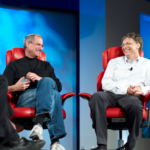In an era where notifications compete for our attention every few seconds and remote work has blurred the boundaries between personal and professional life, productivity books have never been more relevant. The best productivity books today offer innovative frameworks designed specifically for our hyperconnected, always-on world.
This article explores ten groundbreaking productivity books reshaping how we think about work, focus and personal effectiveness. Each offers unique insights and actionable frameworks that can help you manage your time, energy and goals more effectively—all while maintaining your wellbeing and long-term growth. You’ll also learn about classic must-reads for personal productivity challenges.
Top Productivity Books for Focus and Time Management
Focus and time management are two key aspects of improving productivity. Each of the following books tackle these topics while offering unique insights and strategies.
Attention Span: A Groundbreaking Way to Restore Balance, Happiness and Productivity
Attention Span by Gloria Mark (2023) is based on looking at real-world experiences. A professor of informatics at the University of California, Irvine, Mark spent twenty years studying how people actually work in real office environments. She tracked everything from email interruptions to meeting patterns. Her findings challenge common assumptions about multitasking and reveal why jumping between tasks can leave us mentally drained. This book translates her academic research into practical advice, and is useful for anyone struggling to maintain focus in chaotic work environments.
Attention Span stands out for its scientific rigor and practical applications. Mark introduces the concept of attention residue and offers specific techniques for transitioning between tasks, managing interruptions and designing work environments that support sustained focus.
The book has received numerous accolades, including being named a Cosmopolitan Best New Non-Fiction Book and featured in The New York Times and Wall Street Journal.
Four Thousand Weeks: Time Management for Mortals
In Four Thousand Weeks: Time Management for Mortals by Oliver Burkeman (2021), the author takes a refreshingly honest approach to time management. Burkeman does so by acknowledging that we’ll never get everything done. And that’s OK. His existential yet practical framework can help readers accept life’s limitations while making better choices about what deserves their attention. Rather than promising superhuman productivity, this book teaches you how to choose what matters most.
What sets Four Thousand Weeks apart from traditional time management books is its philosophical foundation. Burkeman argues that accepting our finite nature liberates us to focus on meaningful work rather than busywork.
The book has been a New York Times and Sunday Times (UK) best-seller. It has also received high praise from thought-leaders like Adam Grant, Mark Manson and Cal Newport.
The Shallows
The Shallows by Nicholas Carr (2020) offers an innovative look into focus and neuroscience. Carr’s updated exploration of how the internet rewires our brains includes the latest neuroscience on attention and technology. He demonstrates how constant connectivity can undermine our capacity for deep thinking and includes strategies for protecting our cognitive abilities in an age of digital distraction.
The book provides both the science behind why focus feels so difficult today. In addition, it highlights practical approaches for reclaiming sustained attention. Carr’s work is powerful reading for anyone who feels their ability to concentrate has deteriorated over the past decade.

Personal Productivity Books That Prioritize Wellbeing
Our wellbeing can be tied to our productivity levels in many ways. These books explore this relationship.
Rest Is Resistance: A Manifesto
Rest Is Resistance by Tricia Hersey (2022) takes a closer look at the pace of modern life. Hersey, founder of The Nap Ministry, challenges the hustle culture narrative by presenting rest as a radical act of self-preservation. This book reframes productivity by questioning the assumption that busyness equals effectiveness. Instead, it offers a framework for sustainable performance that honors human needs for recovery and reflection.
The book provides practical strategies for integrating rest into daily routines and establishing boundaries with work demands. It also addresses how to recognize the signs of productivity burnout before they become overwhelming. Hersey’s approach helps readers understand that true productivity can include the wisdom to pause, reflect and recharge.
The book was an instant New York Times best-seller, featured in the Chicago Tribune and received praise from a wide range of thought leaders and publications.
The Burnout Epidemic: The Rise of Chronic Stress and How We Can Fix It
The Burnout Epidemic: The Rise of Chronic Stress and How We Can Fix It by Jennifer Moss (2021) combines workplace research with practical interventions. It’s useful for both individuals and organizations struggling with chronic stress. Moss’s data-driven approach reveals the systemic causes of burnout while offering concrete strategies for prevention and recovery.
Readers learn to identify early warning signs of burnout, create protective boundaries and design work routines that prevent the accumulation of chronic stress. One of the book’s most unique aspects is its dual focus on personal strategies and organizational culture change.
Awards and accolades include being named a Best New Management Book by Thinkers50, an OWL Literary Award nominee and praise from publications such as Publisher’s Weekly, Business Insider and more.
Stolen Focus: Why You Can’t Pay Attention
Stolen Focus: Why You Can’t Pay Attention by Johann Hari (2022) discusses the challenge of focusing in today’s world. Hari investigates the systemic reasons why maintaining focus has become so difficult. His work suggests that individual willpower isn’t the problem. Instead, he discusses how our environment works against sustained attention. Through global reporting and research, he uncovers the forces fragmenting our focus. Additionally, the book offers both personal and societal solutions.
Stolen Focus helps readers understand that their attention struggles aren’t personal failures but predictable responses to a distraction-engineered world. Hari provides both individual coping strategies and a broader framework for protecting attention in the modern age.
Stolen Focus was named Porchlight’s Personal Development & Human Behavior book of the year and was also recognized as one of Amazon’s three best books of the year in 2022.
Self-Improvement Books for Success and Leadership
Self-improvement goes hand-in-hand with success and being a strong leader. These powerful books take fresh approaches to inspire growth.
Building a Second Brain: A Proven Method to Organize Your Digital Life and Unlock Your Creative Potential
Building a Second Brain by Tiago Forte (2022) explores the intersections of knowledge and decision-making. Forte presents a comprehensive system for capturing, organizing and utilizing information in the digital age. His method helps manage the overwhelming flow of ideas, articles and insights that modern professionals encounter daily.
The book provides step-by-step guidance for creating a personal knowledge management system, and its unique methodology can help enhance creativity and decision-making. The author’s approach is particularly valuable for entrepreneurs, writers, and anyone whose work involves synthesizing information from multiple sources. A productivity expert, Forte has appeared in Forbes, the New York Times, Harvard Business Review, and more.
Smart Brevity: The Power of Saying More With Less
Smart Brevity: The Power of Saying More With Less by Axios founders Jim VandeHei, Mike Allen & Roy Schwartz (2022) teaches leaders how to communicate more effectively in an attention-scarce world. The authors demonstrate how clear, concise communication actually increases impact rather than diminishing it.
The book includes practical frameworks for writing emails, presentations and reports that get read and acted upon. Their approach helps leaders cut through information overload to deliver messages that stick and inspire action.
The book is praised by business leaders like Jamie Dimon, Ariana Huffington and Tory Burch.
Leading Lightly: Lower Your Stress, Think with Clarity, and Lead with Ease
Leading Lightly: Lower Your Stress, Think with Clarity, and Lead with Ease by Jody Michael (2022) discusses the connections between performance and burnout. Michael combines leadership coaching with neuroscience research to help high-performing professionals maintain effectiveness without burning out. Her approach addresses the specific challenges leaders face and offers ways to sustain peak performance while supporting others.
The book provides tools for emotional regulation, energy management and decision-making under pressure. Michael’s framework is particularly valuable for leaders who struggle to balance their own wellbeing with organizational demands.
Leading Lightly is a Wall Street Journal bestseller and Axiom Business Book Awards Gold Medalist.
The Power of Regret: How Looking Backward Moves Us Forward
The Power of Regret: How Looking Backward Moves Us Forward by Daniel H. Pink (2022) dives into the unique ways regret can actually make us better. Pink uses behavioral research to demonstrate how embracing regret can improve performance and decision-making. Rather than viewing regret as a negative emotion to avoid, he shows how reflecting on our mistakes and missed opportunities can enhance future choices.
The book provides frameworks for productive regret analysis and decision-making processes that account for potential future regrets. Pink’s approach represents an evolution in productivity thinking from pure optimization toward emotional intelligence and self-awareness.
The Power of Regret has been named as one of the Best Books of 2022 by Amazon, Apple Books and NPR, as well as being a New York Times bestseller.
Best Productivity Books Ever vs. New Must-Reads
Classics like Getting Things Done by David Allen and The 7 Habits of Highly Effective People by Stephen R. Covey establish foundational productivity principles and remain popular for a reason: their insights are still relevant and transformative today.
However, today’s best-selling productivity books address realities that didn’t exist when these works were written. Social media, remote work, always-on connectivity and widespread burnout have created new challenges that require updated approaches.
Modern productivity books build upon timeless principles such as goal-setting and priority management while also addressing contemporary issues like digital overwhelm, attention fragmentation and sustainable performance. They tend to be more research-based, incorporating insights on neuroscience, psychology and organizational behavior that weren’t available to earlier authors.
What makes these new releases essential is their recognition that productivity isn’t just about efficiency, but also effectiveness in a complex, rapidly changing world. Books like Four Thousand Weeks acknowledge human limitations rather than promising unlimited optimization, while works like Rest Is Resistance challenge the fundamental assumptions underlying traditional productivity culture.
Choosing the Best Book for Productivity Based on Your Needs
Selecting the right productivity book depends on your specific challenges, goals and current situation. Are are some insights on how to match your needs with the most appropriate resources:
- For Digital Overwhelm and Focus Issues: If you struggle with constant interruptions and digital distractions, consider beginning with Attention Span or Stolen Focus. These books provide both the science behind modern attention challenges and practical strategies for protection.
- For Burnout and Sustainable Performance: Readers experiencing chronic stress or productivity burnout may find it helpful to prioritize Rest Is Resistance or The Burnout Epidemic. These books address the systemic and personal factors that lead to unsustainable work patterns.
- For Leadership and Communication: Professionals in leadership roles may benefit from Smart Brevity or Leading Lightly. These books bridge individual effectiveness with team and organizational impact.
- For Knowledge Management and Creative Work: If you’re overwhelmed by information or struggle to connect ideas across projects, Building a Second Brain provides a comprehensive system for managing intellectual work.
- For Philosophical Perspective on Time: Readers seeking a deeper examination of their relationship with time and productivity may want to explore Four Thousand Weeks or The Power of Regret. These books offer frameworks for rethinking fundamental assumptions about effectiveness and success.
When selecting a book, consider your current stress level and capacity for change. Some readers benefit from systematic approaches such as Forte’s knowledge management system, while others need the permission to rest that Hersey provides. Match the book’s tone and complexity to your current bandwidth for implementing new strategies.
Productivity Books to Read Now for a Smarter Work Life
The landscape of productivity literature has evolved significantly in the past decade. This reflects our growing understanding of attention, burnout and sustainable performance. These ten books offer fresh insights while addressing individual effectiveness and broader cultural challenges.
What distinguishes the best productivity books of recent years from their predecessors is their recognition that traditional productivity culture often creates the very problems it claims to solve. Books like Rest Is Resistance and Four Thousand Weeks challenge the fundamental assumption that doing more is always better, while works like Stolen Focus reveal the systemic forces working against individual attention.
Choose one or two books from this list that most closely align with your current challenges or goals. Start by implementing one key strategy from the book you’ve chosen, and gradually build upon the foundations as you develop your personalized productivity system. Remember, the best productivity approach is the one you can maintain consistently while supporting your overall well-being and long-term success.
Photo courtesy of Halfpoint/Shutterstock










